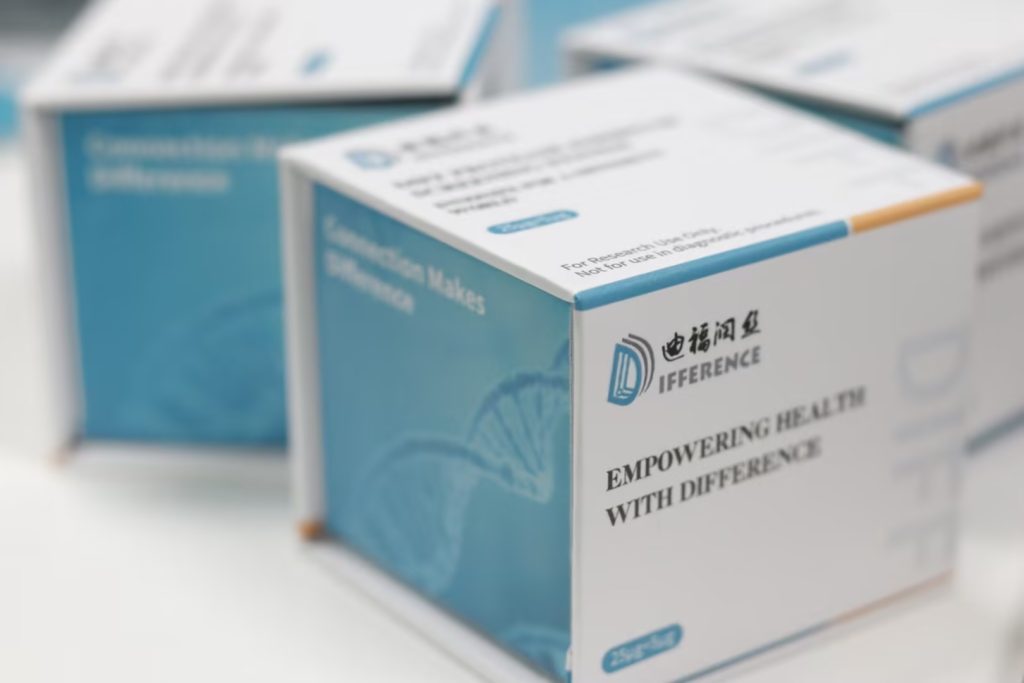The first drug for treating HIV, zidovudine, was approved for sale in the United States in 1987. The launch of protease inhibitor drugs around 1990. For a long period of time thereafter, anti HIV drugs mainly consisted of reverse transcriptase inhibitors and protease inhibitors. However, due to the high variability, fast replication speed, and strong variability of the HIV virus, it can be said that it mutates while replicating, which can easily lead to drug resistance and urgently require the emergence of a new drug. In 2007, the first integrase inhibitor (INSTI), Latiravir, was launched in the United States. In 2010, Aviravir and Doitavir were launched, marking the beginning of the era of integrase inhibitors in HIV treatment. Its advantages of rapid disease load reduction, high resistance barrier, minimal toxic side effects, and high compliance greatly improve the quality of life of patients.
1、 What is an integrase inhibitor?
HIV belongs to the lentivirus genus of the retrovirus family, and is a single stranded RNA virus. The replication process of HIV in human cells includes four stages: attachment and entry, reverse transcription and integration, transcription and translation, maturation and budding. Multiple enzymes are required to participate in these processes, including integrase, reverse transcriptase, and protease. HIV integrase inhibitors (INSTI) effectively inhibit HIV replication in the body by inhibiting integrase and blocking the replication process. Therefore, they have high selectivity and low adverse reactions.
2、 What are the advantages of integrase inhibitors?
Efficient, low toxicity, low side effects, and safe, integrase inhibitors have significantly higher safety than non nucleoside and protease inhibitors. Adverse reactions in the central nervous system are significantly reduced compared to efavirenz, and adverse reactions in blood lipids and digestive system are better than protease inhibitors. It has become the preferred recommendation in many international AIDS treatment guidelines.
3、 What are the specific integrase inhibitor drugs?
At present, the integrase inhibitors that have been launched in China include: Latiravir, Doitaravir, and Aviravir. In addition, Bictegravir (trade name Bictegravir) has been reviewed and is expected to be launched. Among the above-mentioned drugs, Doitavir (trade name Twicke) and Latiravir (trade name Aisent) are sold in single tablet form and need to be used in combination with other antiviral drugs. Aviravir is included in Acorn Propionate Tablets (trade name Jefukang) as a composite formulation.
1. Latiravir (RAL)
Latiravir is a first generation HIV integrase inhibitor that can simultaneously inhibit the replication of HIV-1 and HIV-2. Mild side effects, high medication safety, and no food restrictions during medication. But the drug resistance barrier is lower than that of Doxeira, and there is cross resistance with Aviravir.
When using rituximab, it needs to be combined with other drugs to construct antiviral combinations. It is clinically used to treat HIV infection and can also be used as part of post exposure prophylaxis (PEP) and pre exposure prophylaxis (PrEP) for HIV.
Common side effects include headache, fatigue, difficulty falling asleep, nausea, and high blood sugar. Severe cases may experience allergic reactions, including Stevens Johnson syndrome, muscle failure, and liver disease. It is currently unclear whether it is safe to use during pregnancy or breastfeeding.
2. Aviravir (EVG)
The drug resistance barrier is low, and there is cross resistance with rituximab, which requires co administration with food. Due to the inhibition of creatinine secretion in renal tubules, it can lead to an increase in blood creatinine. Due to insufficient blood drug concentration in pregnant women, it should be avoided for use in pregnant women.
The compound preparation Jiefukang (Acorn Propionate Tablets) is used for the treatment of HIV infection. Due to the tendency of Aviravir to complex with multivalent metal cations and form insoluble substances, it affects absorption, leading to a decrease in drug blood concentration and inducing drug resistance. Therefore, avoid taking supplements that are equivalent to vitamins, minerals, or complex vitamin supplements containing minerals, as well as antacids (such as calcium carbonate, magnesium oxide, aluminum hydroxide, magnesium trisilicate, etc.), and take them 2 hours in advance or 4 hours later;
3. Duotelamivir (DTG)
Doitavir (Tweek) is a second-generation HIV integrase inhibitor with a high resistance barrier, less cross resistance, and minimal drug interactions. There are no food restrictions during medication, and other antiviral drugs need to be used in combination. Due to the inhibition of creatinine secretion in renal tubules by Doxervavir, it can lead to an increase in blood creatinine; High incidence of insomnia and headache during medication period; In addition, taking Doitavir during pregnancy can increase the risk of fetal neural tube defects.
Duotelamivir can be used in combination with other antiviral drugs to treat HIV infection, and can also be used as part of post exposure prophylaxis (PEP) and pre exposure prophylaxis (PrEP) for HIV.
4. Bicentecavir (BIC)
The drug resistance barrier is relatively high and there is less cross resistance. The advantage is that the risk of virological failure and drug resistance is low, and HLA * B5701 does not need to be tested during use. There are no food restrictions during medication.
At present, there is insufficient clinical data and various adverse reactions are unknown.
For initial treatment, choose second-generation integrase inhibitors as much as possible, as they have a high genetic barrier. Currently, there are drugs on the market such as Tyvek, Suimekai, and the recently popular Bituximab.
5. Cabotevir (CAB)
Cabotevir is a long-acting integrase inhibitor with a structure similar to that of methotrexate, similar to that of doxycycline. CAB is packaged into nanoparticles with an extremely long biological half-life and strong antiviral activity. It only needs to be administered once a month to achieve long-lasting treatment. Used for adult HIV infection.
Common side effects include fever, fatigue, headache, musculoskeletal pain, nausea, sleep disorders, dizziness, rash, and diarrhea.
4、 Will integrase inhibitors develop resistance?
meeting. Under the premise of maintaining compliance and controllable side effects, a medication can really be taken for many, many years, such as more than 20 years. Without considering the interactions between genes, drugs, food, etc., the probability of treatment failure with integrase inhibitors is very low. At present, the success rate of mainstream drug combinations is approximately between 70% and 90%. As for the side effects of drugs, it should be noted that antiviral therapy is a serious disease that depends on the degree of immune system recovery. If the autoimmune reconstruction is good and no immune deficiency occurs, then the expectation is good. On the contrary, if the self immune reconstruction is poor or there are underlying diseases, even without medication, kidney function will gradually decline, and the treatment effect will not be so optimistic. The physical effects caused by drugs are mostly reversible when detected early, so the key is to detect them in a timely manner (regular follow-up) and take measures quickly. In summary, the key to anti HIV treatment is early treatment, strong immune function (i.e. a good foundation), and economy is also a very important factor, because only good material security can improve the quality of life.
Summary
After decades of in-depth research, HIV remains a chronic infection, and the number of HIV infected individuals is increasing year by year. The emergence of integrase inhibitors has brought light and hope to the vast number of HIV patients. As the preferred first-line treatment option, it is currently a new trend in HIV treatment. In the next few years, compound single tablets with integrase inhibitors as the core will become the mainstream of treatment, and better new drugs are still on the way, providing better long-term health outcomes for HIV infected patients and moving towards the goal of complete cure.
All beautiful results are gained through action, you don’t need to be very powerful, but you need to start in order to become powerful!
Important statement: The drugs introduced in this article are for reference only and cannot be used as medical advice. Please refer to clinical practice or the prescription of the attending physician for medication.
July 23, 2024
What is an HIV integrase inhibitor? What are the advantages? Will it be resistant to drugs?
Share on:
Facebook
Twitter
Pinterest
WhatsApp
Recent posts
We recommend


